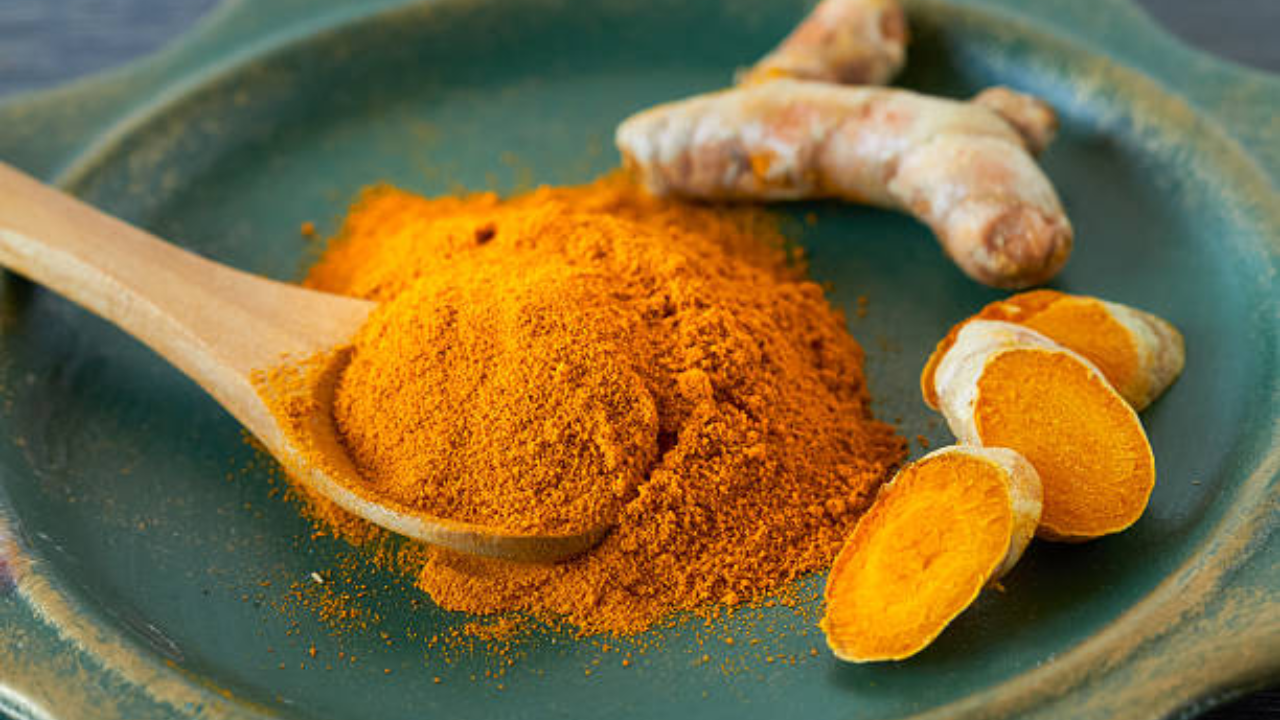Turmeric, a vibrant yellow spice has been used for centuries in traditional medicine and cooking. It is renowned for its potent anti-inflammatory and antioxidant properties, attributed to its active compound, curcumin. While turmeric is generally considered safe and beneficial for health, particularly when consumed in moderate amounts as part of a balanced diet, some individuals may wonder about its effects on kidney health.
Turmeric has several health benefits for the kidneys
Turmeric contains curcumin, which has been shown to possess powerful anti-inflammatory properties. Chronic inflammation is associated with various kidney diseases, including chronic kidney disease (CKD). Curcumin is also known for its antioxidant effects, which help neutralize harmful free radicals and protect cells from oxidative damage.
Some studies suggest that turmeric may offer protective effects against kidney damage and dysfunction. Research in animal models has demonstrated that curcumin supplementation can help mitigate kidney injury caused by various factors, including toxins, diabetes, and high cholesterol.
High blood pressure (hypertension) is a leading risk factor for kidney disease. Turmeric may help lower blood pressure through its vasodilatory and anti-inflammatory effects, potentially reducing the risk of kidney damage associated with hypertension. However, individuals with existing kidney disease should monitor their blood pressure carefully and consult with a healthcare professional before using turmeric as a supplement.
However, there are a few side effects you need to be careful about
While turmeric is generally considered safe for most people when consumed in culinary amounts, excessive intake or supplementation may pose risks, particularly for individuals with kidney issues.
Some studies suggest that high doses of curcumin may have nephrotoxic effects and exacerbate kidney damage, especially in individuals with pre-existing kidney disease or risk factors.
Turmeric supplements may interact with certain medications commonly used to treat kidney conditions, such as blood thinners and drugs that affect kidney function. Individuals with kidney disease need to consult with a healthcare professional before taking turmeric supplements.
Oxalates in turmeric can cause kidney stones
While turmeric may help prevent the formation of certain types of kidney stones, it’s important to note that turmeric contains oxalates, compounds that can contribute to the formation of calcium oxalate kidney stones in susceptible individuals. Individuals with a history of kidney stones or those prone to oxalate-related kidney issues should consume turmeric in moderation and ensure adequate hydration to help prevent the formation of kidney stones.
Individuals with kidney disease or those at risk of kidney issues should exercise caution when using turmeric supplements and consider consulting with a healthcare professional before incorporating them into their regimen.
Monitoring kidney function through regular blood tests and clinical evaluations is crucial for individuals with kidney disease, especially if they are considering turmeric supplementation.
Turmeric has several health benefits for the kidneys
Turmeric contains curcumin, which has been shown to possess powerful anti-inflammatory properties. Chronic inflammation is associated with various kidney diseases, including chronic kidney disease (CKD). Curcumin is also known for its antioxidant effects, which help neutralize harmful free radicals and protect cells from oxidative damage.
Some studies suggest that turmeric may offer protective effects against kidney damage and dysfunction. Research in animal models has demonstrated that curcumin supplementation can help mitigate kidney injury caused by various factors, including toxins, diabetes, and high cholesterol.
High blood pressure (hypertension) is a leading risk factor for kidney disease. Turmeric may help lower blood pressure through its vasodilatory and anti-inflammatory effects, potentially reducing the risk of kidney damage associated with hypertension. However, individuals with existing kidney disease should monitor their blood pressure carefully and consult with a healthcare professional before using turmeric as a supplement.
However, there are a few side effects you need to be careful about
While turmeric is generally considered safe for most people when consumed in culinary amounts, excessive intake or supplementation may pose risks, particularly for individuals with kidney issues.
Some studies suggest that high doses of curcumin may have nephrotoxic effects and exacerbate kidney damage, especially in individuals with pre-existing kidney disease or risk factors.
Turmeric supplements may interact with certain medications commonly used to treat kidney conditions, such as blood thinners and drugs that affect kidney function. Individuals with kidney disease need to consult with a healthcare professional before taking turmeric supplements.
Oxalates in turmeric can cause kidney stones
While turmeric may help prevent the formation of certain types of kidney stones, it’s important to note that turmeric contains oxalates, compounds that can contribute to the formation of calcium oxalate kidney stones in susceptible individuals. Individuals with a history of kidney stones or those prone to oxalate-related kidney issues should consume turmeric in moderation and ensure adequate hydration to help prevent the formation of kidney stones.
Individuals with kidney disease or those at risk of kidney issues should exercise caution when using turmeric supplements and consider consulting with a healthcare professional before incorporating them into their regimen.
Monitoring kidney function through regular blood tests and clinical evaluations is crucial for individuals with kidney disease, especially if they are considering turmeric supplementation.
World Liver Day 2024: Modifiable risk factors that affect liver health
Denial of responsibility! Swift Telecast is an automatic aggregator of the all world’s media. In each content, the hyperlink to the primary source is specified. All trademarks belong to their rightful owners, all materials to their authors. If you are the owner of the content and do not want us to publish your materials, please contact us by email – swifttelecast.com. The content will be deleted within 24 hours.


